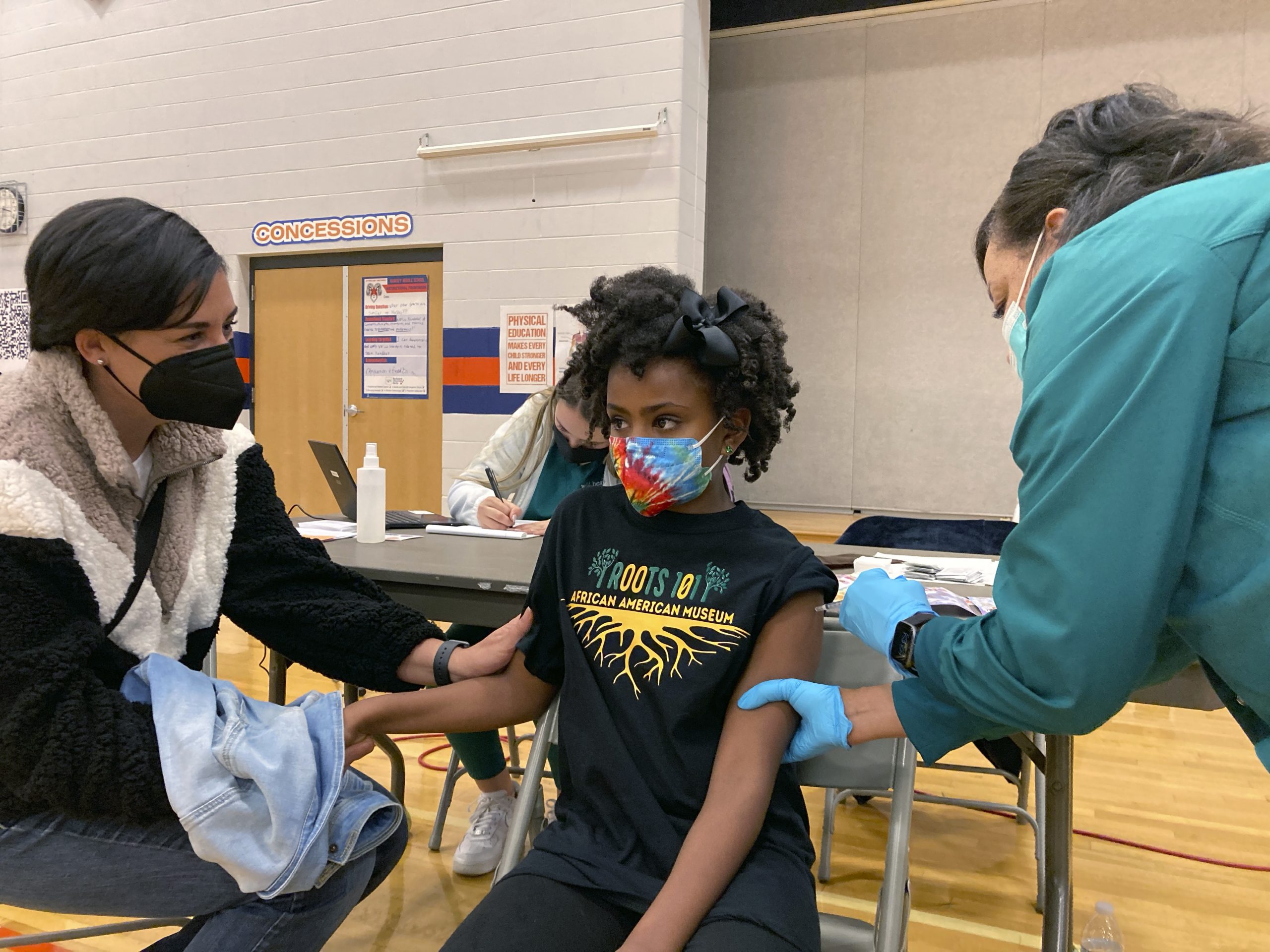
Pfizer and BioNTech announced today that they plan to submit data to the Food and Drug Administration for three doses of their Covid-19 vaccine for children at least 6 months old up to children under 5 years old.
The companies released top-line results showing that three pediatric doses of their Covid-19 vaccine generated a comparable immune response in children as two full doses did in young adults — the primary end goal the FDA set for pediatric vaccine manufacturers. About 19 million children in the U.S. are in this age group, none of whom are currently eligible to receive a Covid-19 vaccine.
Three doses of the vaccine also appeared to reduce cases of symptomatic disease by 80.3 percent among the youngest kids. However, at the time of analysis, only 10 children in the study developed symptomatic Covid-19 up to seven days after their third shot, according to a press release. The companies previously specified they would analyze effectiveness after 21 children developed Covid following their third shot and plan to release updated data when available.
No children in the trial had any serious side effects, the release said.
“These topline safety, immunogenicity and efficacy data are encouraging, and we look forward to soon completing our submissions to regulators globally with the hope of making this vaccine available to younger children as quickly as possible, subject to regulatory authorization,” Albert Bourla, Pfizer’s chief executive officer, said in a statement.
Background: Pfizer and BioNTech initially asked the FDA to authorize their two-shot Covid-19 regimen for kids 6 months to under 5 in February. The agency delayed the advisory committee meeting that would discuss the vaccine for this population, opting to wait for more data on a third dose. Pfizer tested a dose for children equal to about one-tenth of what adults received. Two kid-sized doses in children 6 to 24 months old generated immunity comparable to that in young adults who received two full doses. The same two pediatric doses didn’t generate similar immunity in children 2 to 5 years old.
The companies collected data on three doses of their vaccine in 1,678 children who received their third shot at least two months after they received their second, the release said. Omicron was the dominant variant of Covid-19 circulating at that time.
In late April, FDA”,”link”:{“target”:”NEW”,”attributes”:[],”url”:”https://www.politico.com/news/2022/04/27/moderna-authorize-covid-19-vaccine-kids-00028481″,”_id”:”00000180-f0c4-d243-a1c9-f9f51acd000a”,”_type”:”33ac701a-72c1-316a-a3a5-13918cf384df”},”_id”:”00000180-f0c4-d243-a1c9-f9f51acd000b”,”_type”:”02ec1f82-5e56-3b8c-af6e-6fc7c8772266″}”>Moderna asked the FDA to authorize its two-dose Covid-19 vaccine for the same age group. Late-stage clinical trials showed that pediatric doses of its vaccines generated comparable immunity in the youngest children as two full doses did in young adults.
However, Moderna’s vaccine reduced symptomatic Covid-19 cases by 43.7 percent among children 6 to 24 months old and by 51 percent of cases detected by PCR tests. For kids 2 to 6 years old, it reduced symptomatic cases by 35.7 percent and PCR-detected cases by 37 percent.
What’s next: Pfizer expects to complete its submission to the FDA this week, according to the release. The FDA will schedule an advisory committee meeting to discuss the companies’ application when they complete their data submission.

